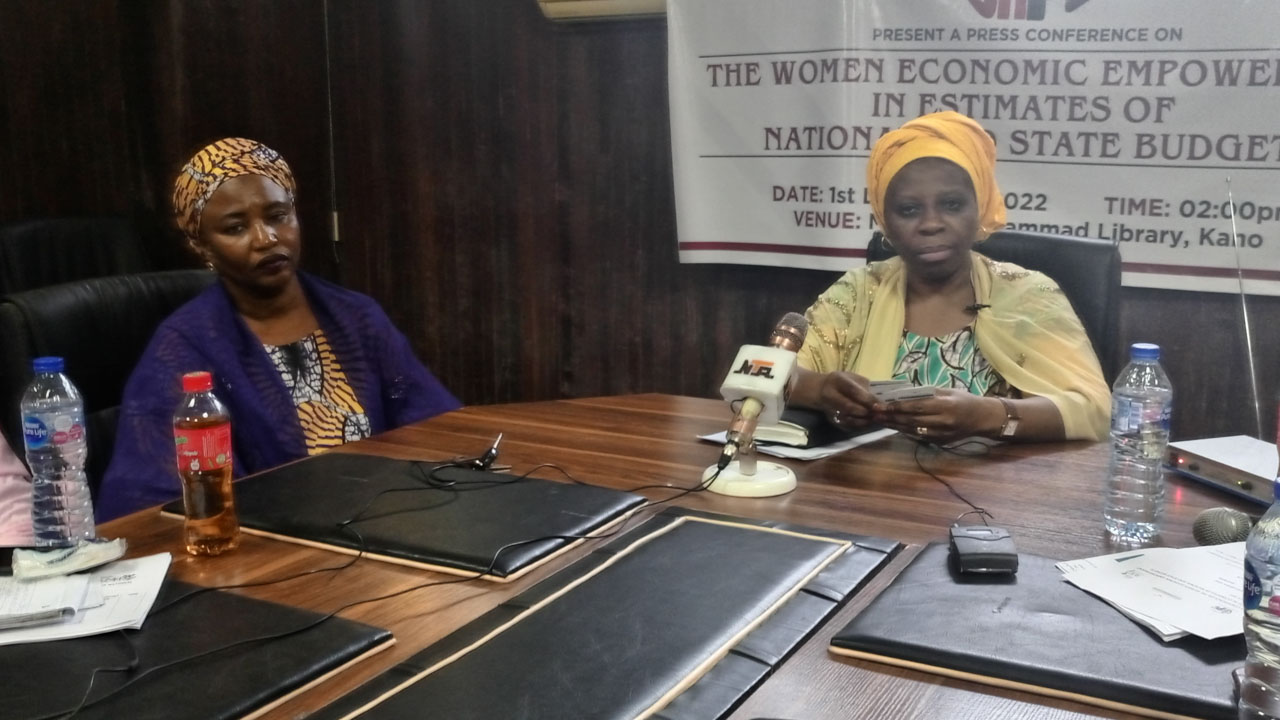
A coalition of non-governmental organisations, New Faces New Voice Nigeria NFNV-Nigeria, and Development Research and Project Centre dRPC have raised alarm against the steady decline of appropriation on Women’s Economic Empowerment WEE projects across the country.
The groups lamented that continuous dwindling in the allocation at both Federal and state levels is capable of crippling the economic potential of women in the society.
The country representative of NFNV-Nigeria, Hajiya Aishatu Aminu at a press briefing at the weekend told journalists that federal allocation on WEE has dropped drastically from N103,496,035,287 in 2022 to N58,707,417,471 as captured in 2023 appropriation.
Aminu added that the decapitated budget size of WEE project from 0.60 per cent in 2022 to 0.29 per cent in the 2023 budget, the same as the total number of WEE projects reduced from 938 in 2022 to 122 projects in 2023.
At the state level, Aminu lamented the huge gap in financial inclusion between men and women in Kano, worried that only 14.3 per cent of women have a bank account. She attributed the financial exclusion of women in the state to unstable income, unemployment and lack of adequate government empowerment for women.
The NFNV country head said the negative trend clearly contradicted the provisions of Sustainable Development Goals (SDG) which encourage equitable treatment and empowerment for women and girls in the country.
She maintained that when women are given opportunities to access resources and life support facilities as their male counterparts, the benefits in the society are far-reaching, especially in education, economic growth and health.
Aminu regretted that despite global advancement in almost all sectors of the economy, more women are still living below the poverty line with less than two-thirds of women participating in the labour force compared to more than 90 per cent of men.
” WEE components give women access to income and assets, control of and benefit from society, and power to make decisions. This means that denying women these opportunities has equally denied them voice, income, assets, opportunities and power to make their own decisions.
” WEE components include all activities targeting women and young girls as economic actors, including capacity building, vocational training, skill acquisition, grants and start-up funds, Livelihood support, empowerment materials, reorientation and rehabilitation.
Aminu who spoke on behalf of the dRPC declared that the coalition is demanding both federal and state governments to sustain the increased allocation to WEE-related budgets and streamline WEE projects across agencies, ministries and departments of government for effective implementation.
Equally requested, is effective monitoring and evaluation framework to monitor WEE projects while ensuring lump sum empowerment programs should be disaggregated by sex in order to pave way for the number of women beneficiaries and accountability.



